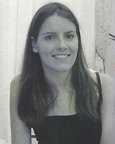Studying at the University of Verona
Here you can find information on the organisational aspects of the Programme, lecture timetables, learning activities and useful contact details for your time at the University, from enrolment to graduation.
Academic calendar
The academic calendar shows the deadlines and scheduled events that are relevant to students, teaching and technical-administrative staff of the University. Public holidays and University closures are also indicated. The academic year normally begins on 1 October each year and ends on 30 September of the following year.
Course calendar
The Academic Calendar sets out the degree programme lecture and exam timetables, as well as the relevant university closure dates..
| Period | From | To |
|---|---|---|
| Sem. 1A | Sep 23, 2019 | Oct 31, 2019 |
| Sem. 1B | Nov 11, 2019 | Jan 11, 2020 |
| Sem. 2A | Feb 17, 2020 | Mar 28, 2020 |
| Sem. 2B | Apr 6, 2020 | May 30, 2020 |
| Session | From | To |
|---|---|---|
| Sessione d'esame invernale | Jan 13, 2020 | Feb 15, 2020 |
| Sessione d'esame estiva | Jun 3, 2020 | Jul 25, 2020 |
| Sessione d'esame autunnale | Aug 24, 2020 | Sep 19, 2020 |
| Session | From | To |
|---|---|---|
| Sessione di laurea estiva | Jul 6, 2020 | Jul 11, 2020 |
| Sessione di laurea autunnale - Servizio Sociale | Nov 6, 2020 | Nov 6, 2020 |
| Sessione di laurea invernale | Apr 7, 2021 | Apr 13, 2021 |
| Period | From | To |
|---|---|---|
| Festa di Ognissanti | Nov 1, 2019 | Nov 1, 2019 |
| Chiusura Ateneo | Nov 2, 2019 | Nov 2, 2019 |
| Festa dell'Immacolata | Dec 8, 2019 | Dec 8, 2019 |
| Vacanze di Natale | Dec 23, 2019 | Jan 6, 2020 |
| Vacanze di Pasqua | Apr 10, 2020 | Apr 14, 2020 |
| Festa della liberazione | Apr 25, 2020 | Apr 25, 2020 |
| Festa del lavoro | May 1, 2020 | May 1, 2020 |
| Sospensione delle lezioni | May 2, 2020 | May 2, 2020 |
| Festa del Santo Patrono | May 21, 2020 | May 21, 2020 |
| Sospensione delle lezioni | May 22, 2020 | May 23, 2020 |
| Festa della Repubblica | Jun 2, 2020 | Jun 2, 2020 |
| Vacanze estive | Aug 10, 2020 | Aug 15, 2020 |
Exam calendar
Exam dates and rounds are managed by the relevant Humanistic Studies Teaching and Student Services Unit.
To view all the exam sessions available, please use the Exam dashboard on ESSE3.
If you forgot your login details or have problems logging in, please contact the relevant IT HelpDesk, or check the login details recovery web page.
Should you have any doubts or questions, please check the Enrollment FAQs
Academic staff
 roberto.dallachiara@univr.it
roberto.dallachiara@univr.it
 elisabetta.neve@univr.it
elisabetta.neve@univr.it
 mauro.niero@univr.it
mauro.niero@univr.it
 marta.pantalone@univr.it
marta.pantalone@univr.it
Study Plan
The Study Plan includes all modules, teaching and learning activities that each student will need to undertake during their time at the University.
Please select your Study Plan based on your enrollment year.
1° Year
| Modules | Credits | TAF | SSD |
|---|
2° Year activated in the A.Y. 2020/2021
| Modules | Credits | TAF | SSD |
|---|
| Modules | Credits | TAF | SSD |
|---|
| Modules | Credits | TAF | SSD |
|---|
| Modules | Credits | TAF | SSD |
|---|
Legend | Type of training activity (TTA)
TAF (Type of Educational Activity) All courses and activities are classified into different types of educational activities, indicated by a letter.
Sociology of Social Innovation - SOCIAL NETWORK ANALYSIS E INTERVENTO DI RETE (2019/2020)
Teaching code
4S007410
Credits
3
Coordinator
Not yet assigned
Language
Italian
Scientific Disciplinary Sector (SSD)
SPS/07 - GENERAL SOCIOLOGY
To show the organization of the course that includes this module, follow this link: Course organization
The teaching is organized as follows:
Lezione
Esercitazione
Learning outcomes
------------------------
MM: Lezione
------------------------
The unit will allow students to develop the ability to define society and social phenomena as constituted by social relations and networks of social relations. In particular, the unit will provide the students with the ability to know the social phenomena connected to social services, starting from their relational constitution. For this purpose the students will be provided with the methodological tools made available by the social network analysis. The unit is also aimed at the production of a specific knowledge linked to a possible practical application, within the social services, of the relational conception of social phenomena, namely the methodology of the network intervention. Upon completion of the unit, students should be able to define theoretically the concepts and the relational contexts, with particular regard to the areas of intervention for the social services.
------------------------
MM: Esercitazione
------------------------
Upon completion of the unit, students should be able to operationalize the concepts and the relational contexts, with particular regard to the areas of intervention for the social services. Students should be able also to collect, systematize and analyze, with proficiency, methodological precision and command of terminology, the data on the social networks explored, and to use the results of these analysis to identify the possible network interventions. Finally, students should be able, through the acquired skills, to describe and analyze the outcomes produced by the network interventions.
Program
------------------------
MM: Lezione
------------------------
In order to achieve the learning outcomes, the unit syllabus will be structured as follows: 1. What is a social network and how it can be identified. 2. The properties of the relationships. 3. The methodology of the network intervention. The program will be analytically presented during the frontal lectures. All the topics in the syllabus can be found in the reference books.
------------------------
MM: Esercitazione
------------------------
In order to achieve the learning outcomes, the unit syllabus will be structured as follows: 1. The properties of the nodes. 2. The properties of the networks. 3. Different ways of observing networks. 4. Some examples of research conducted through the social network analysis. The program will be analytically presented by means of practical activities. All the topics in the syllabus can be found in the reference books.
Bibliography
| Activity | Author | Title | Publishing house | Year | ISBN | Notes |
|---|---|---|---|---|---|---|
| Lezione | Andrea Vargiu | Il nodo mancante. Guida pratica all'analisi delle reti per l'operatore sociale (Edizione 1) | FrancoAngeli | 2001 | 9788846431288 | Premessa e capitoli 1 e 2. / Foreword, and chapters 1, and 2. |
| Lezione | Daniela Campana | Metodologia dell'intervento di rete nell'ambito dei servizi sociali e sanitari, in «Studi di Sociologia», 42, 4, pp. 479-501. | 2004 | Articolo su rivista. / Journal article. | ||
| Esercitazione | Andrea Vargiu | Il nodo mancante. Guida pratica all'analisi delle reti per l'operatore sociale (Edizione 1) | FrancoAngeli | 2001 | 9788846431288 | Capitoli 3, 4, 5, 6 e 7. / Chapters 3, 4, 5, 6, and 7. |
Examination Methods
------------------------
MM: Lezione
------------------------
The examination is aimed at evaluating the theoretical skills acquired by the students. The content of the syllabus is assessed. The examination consists of an oral discussion and is conducted in the same way for attending and non-attending students.
------------------------
MM: Esercitazione
------------------------
The examination is aimed at evaluating the practical skills acquired by the students. The content of the syllabus is assessed. The examination consists of an oral discussion and is conducted in the same way for attending and non-attending students.
Type D and Type F activities
Modules not yet included
Career prospects
Module/Programme news
News for students
There you will find information, resources and services useful during your time at the University (Student’s exam record, your study plan on ESSE3, Distance Learning courses, university email account, office forms, administrative procedures, etc.). You can log into MyUnivr with your GIA login details: only in this way will you be able to receive notification of all the notices from your teachers and your secretariat via email and soon also via the Univr app.
Graduation
Documents
| Title | Info File |
|---|---|
|
|
pdf, it, 99 KB, 13/10/23 |
|
|
pdf, it, 101 KB, 10/04/24 |
List of theses and work experience proposals
| theses proposals | Research area |
|---|---|
| LGBTQ+ Social Psychology | Various topics |
Student mentoring
Gestione carriere
Linguistic training CLA
Practical information for students
Documents
| Title | Info File |
|---|---|
|
|
pdf, it, 325 KB, 02/05/23 |
|
|
pdf, it, 212 KB, 02/05/23 |
|
|
pdf, it, 131 KB, 02/05/23 |
Stage e Tirocini
Il Corso di Studi prevede un tirocinio obbligatorio, secondo le disposizioni e indicazioni che seguono.
1. Le attività di tirocinio degli studenti si svolgono presso strutture esterne, convenzionate con l’Università degli Studi di Verona ai sensi delle vigenti disposizioni in materia.
2. Nelle strutture esterne gli studenti svolgono le attività di tirocinio sotto la responsabilità di un assistente sociale (Tutor-supervisore), appartenente a dette strutture, coordinato a sua volta dal responsabile del tirocinio presso il Corso di Studio. In assenza di un assistente sociale, operante nella struttura esterna, il Collegio didattico, per quanto di competenza, decide, su proposta dei responsabili del tirocinio, in ordine alle condizioni per l’effettuazione o la prosecuzione delle attività di tirocinio degli studenti interessati.
3. Le attività di tirocinio sono obbligatorie per almeno 250 ore. Il Collegio didattico, in deroga alle disposizioni del presente articolo, può consentire a studenti che si trovino in particolari condizioni, in specie se disabili, lavoratori o impegnati in organismi collegiali dell’Università degli Studi di Verona, di non ottemperare in parte all’obbligo di frequenza alle attività di tirocinio, predisponendo forme alternative di tirocinio, anche tramite supporti telematici e multimediali interattivi.
4. I responsabili delle attività di tirocinio presso il Corso di Studio, anche avvalendosi di appositi collaboratori o tutori esterni, accertano la presenza degli studenti presso le rispettive strutture.
5. Al termine dell’attività di tirocinio, lo studente deve presentare una relazione scritta al responsabile di tale attività presso il Corso di Studio. Lo studente elabora la relazione scritta, controfirmata dal Tutor-supervisore. La relazione finale viene valutata dal responsabile del tirocinio presso il Corso di Studio e deve tenere conto degli obiettivi prefissati dal Collegio didattico.
La valutazione viene attribuita al tirocinio nel seguente modo: sufficiente = 0; buono = 1; ottimo = 2; eccellente = 3 e verrà aggiunta alla media dei voti del curriculum al momento della discussione della tesi.
6. Gli Uffici della Direzione Didattica e Servizi agli Studenti predispongono la documentazione necessaria allo svolgimento delle attività di tirocinio, comprese attestazioni e certificazioni.
7. Nel caso in cui lo studente partecipi al programma Erasmus le attività di tirocinio vengono regolamentate come segue:
A – Lo studente svolge il Tirocinio presso la sede Erasmus.
Se lo studente svolge il Tirocinio all’estero si ritiene “assolto” l’obbligo di frequenza al Laboratorio se:
- lo studente aggiorna il proprio docente/tutor con brevi relazioni mensili da inviare mezzo mail, sull’andamento del lavoro svolto presso la sede estera;
- produce una relazione finale completa del tirocinio svolto.
La valutazione finale del laboratorio di guida al tirocinio sarà effettuata da parte del tutor del laboratorio sulla base della relazione dello studente tenendo conto della eventuale valutazione da parte del supervisore estero.
B – Lo studente non svolge il Tirocinio presso la sede Erasmus
Se lo studente non svolge il Tirocinio nella sede Erasmus e lo deve fare al rientro:
- lo studente effettua uno/due incontri individuali iniziali con il docente/tutor in cui predisporre quanto necessita per l’avvio del tirocinio e nei quali verranno forniti materiali, griglie ed eventuali testi di riferimento;
- invia brevi relazioni mensili sull’andamento del tirocinio che sarà svolto in Italia al di fuori del periodo in cui si tiene normalmente il laboratorio di guida al tirocinio;
- produce la relazione finale completa del tirocinio svolto.
Il Corso di Studi prevede un laboratorio interdisciplinare come attività formativa trasversale (3 Cfu di tipo F), presente nell’elenco degli insegnamenti Il laboratorio, per regolamento, prevede la frequenza obbligatoria per almeno i due terzi del totale delle ore.
- Tutte le informazioni in merito agli stage per futuri studenti sono disponibili alla pagina Stage e tirocini.
- Tutte le informazioni in merito agli stage per studenti iscritti sono pubblicate in MyUnivr - come fare per - stage e tirocini.
- Tutte le informazioni in merito agli stage per le aziende sono disponili alla pagina Stage e tirocini per azienze.

 0458425308
0458425308












